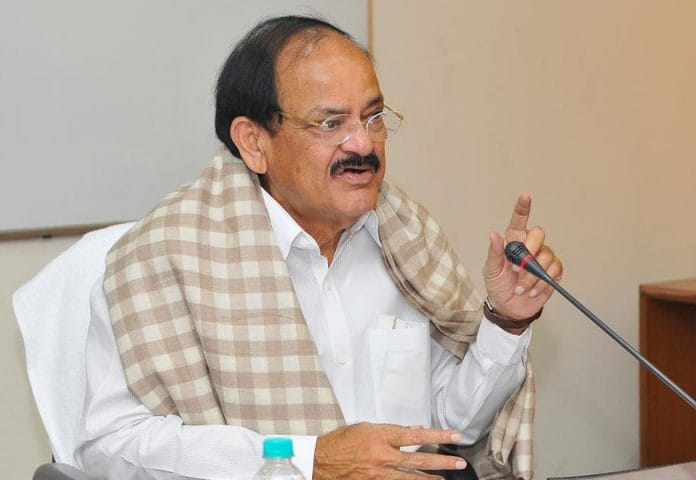Naidu said the signatory MPs were ‘unsure of their own case’, highlighting certain phrases used in the motion, such as ‘may have been involved’ and ‘likely to fall’.
New Delhi: When Vice-President M. Venkaiah Naidu rejected the opposition’s motion seeking impeachment proceedings against the CJI, he cited lack of proof as the reason.
The motion, signed by 64 MPs of seven parties led by the Congress, was submitted to the Rajya Sabha chairman Friday, and stated five grounds to back their case.
In arriving at his decision, Naidu said, he had consulted “legal luminaries, constitutional experts, and former secretary generals of both the houses”. He added that comments made by former attorney generals and editors of prominent newspapers were “unequivocal and nearly unanimous that the present notice of motion before me is not a fit case for removal of judges”.
Here are the reasons he has offered in his-10 page rejection order:
‘Misbehaviour not proven’
Citing constitutional provisions to define “proved misbehaviour” and “incapacity”, Naidu said the allegations in the case had not been “proved”. “There is no concrete verifiable imputation,” he added.
‘Phrases imply suspicion’
Naidu said the signatory MPs were “unsure of their own case”. Highlighting the phrases used in the motion, such as “may have been involved” and “likely to fall”, Naidu added that there was “no proof beyond reasonable doubt”. The phrases used, he said, indicate a “mere suspicion, conjecture or an assumption”.
‘Internal matter of the Supreme Court’
Kamini Jaiswal vs Union of India, November 14, 2017, held that the CJI was the master of the roster and first among equals. About the opposition’s allegation that the CJI had misused his power as master of roster, Naidu said, “Clearly, this is an internal matter to be resolved by the Supreme Court.”
‘Undermines independence of the judiciary’
The VP said the Constitution’s “stringent conditions for initiation of such proceedings” were instituted to keep the judiciary “free of external pressures” and judges “independent”. The notice of motion, he added, will “undermine the independence of the judiciary, which is the basic tenet of the Constitution of India”.
The motion, he added, “denigrates the institution of the Chief Justice of India”.
‘Respect dignity and authority of the courts’
The judicial system is based on the “foundation of trust and confidence” and in its ability to “deliver fearless and impartial justice”, which needs to be “protected at all costs”, the VP said.
Naidu added, “When the foundation is shaken by acts which tend to create disaffection and disrespect for the authority of the court by creating distrust in its working, the edifice of the judicial system gets eroded.”
“We cannot allow our pillars of governance to be weakened by any thought, word or action,” he said
Naidu said he found the motion neither “desirable nor proper”, adding that “parliamentary customs and conventions” had been “disregarded” in its filing.
Rejecting the motion, he stated that he had “expedited” his decision to end “needless speculation”.







Never before in the independent India’s history people may have seen such closeness of Govt. and the CJI. The Vice President for long in India has been person chosen from the ranks of ruling Political party irrespective of the Political Party in power, some have proven their loyalty to the party leader who have been instrumental in his elevation to the post and they have proven their loyalty more to their former leaders than the constitution. Vainkaiya belongs the category and one must not expect from such person that he would be following constitutional propriety. Chelameshwar the senior most Justice of Supreme court in his interview with Karan Thapar has been vocal in his manners that brings dignity the person and the post that the man comes fro. That closeness of CJI who wields more power than any Justices in SC means the Judiciary is closer understanding with the institution which is the greatest litigant in the Courts and people in cue course of time would not have such faith in Judiciary that has been earned by the judiciary over the decades. And knowing it well that the votes are with the ruling party the role of opposition is to expose this complicit.